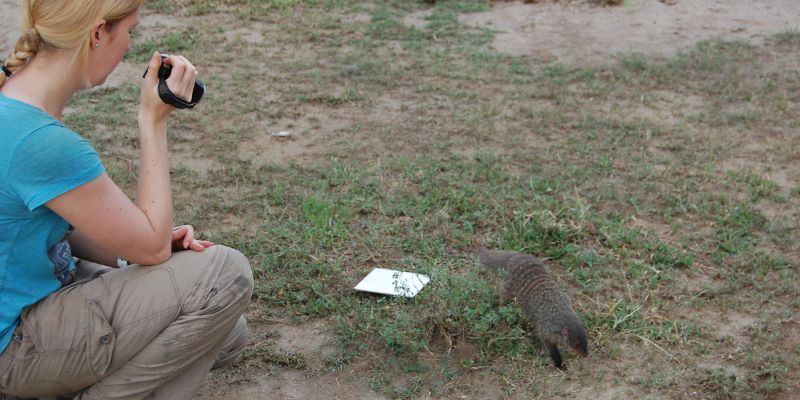By Dr Jessica Mitchell, Research Fellow in the Nuffield Centre for International Health and Development, Faculty of Medicine and Health
I am part of the Community Engagement for Antimicrobial Resistance (CE4AMR) network, which engages communities to ensure wider sources of knowledge are shared when tackling antimicrobial resistance (AMR).
However, as a zoologist, I noticed that although AMR is considered a One Health issue – an approach that recognises the connections between human, animal and environmental health – species beyond those directly linked to people and livestock are rarely considered within AMR National Actions plans, guidance documents, surveillance schemes or awareness raising projects.
This seems counterintuitive - recent disease outbreaks, such as the Covid-19 pandemic, have demonstrated just how influential wildlife can be in the spread, divergence, and containment of One Health challenges.
Habitat degradation, climate change, pollution, intensive farming and human encroachment are causing global declines in wildlife species – damaging ecosystems and impacting natural antimicrobial diversity.
A loss of diversity, leaving species with a limited arsenal of antimicrobial substances, and other AMR drivers including climate change and antimicrobial pollution from farms and hospitals, puts wildlife at risk of health challenges and even death due to AMR.
The risks of neglecting wildlife
If antimicrobial-resistant genes and microbes can infiltrate wildlife, it is unlikely to be long before they reach neighbouring domestic animals, agricultural environments, and humans. It is essential to explore AMR in non-domestic animals and their environments so we can understand the timeline, drivers and consequences of resistance to new drugs.
Neglecting wildlife also means we are missing out on knowledge from wildlife-linked stakeholders – not just professionals such as vets and rangers, but also the wider community living near protected areas, natural environments, and wildlife.
My project will work with communities, stakeholders and existing literature to understand AMR in wildlife to assess its impact at a global level.
Fears and challenges in Uganda

A visit to Uganda in 2022, speaking with wildlife-linked stakeholders including farmers, teachers and rangers, has already delivered some interesting findings.
The use of agricultural pesticides in response to climate change was highlighted as a potential driver of AMR.
There were also concerns about the impact of AMR on animals injured by poachers, with wounds that cannot be regularly checked or treated.
Next steps
As I continue to apply for funding, I hope my research will develop into a comprehensive assessment of how AMR impacts, and is impacted by, wildlife at a global level.
My findings will be shared with international policymakers to influence future AMR action, and could also help bring together researchers in zoology, social sciences and medicine for future collaboration.
Follow Dr Jessica Mitchell on X: @Jessmitch15.
AMR@Leeds event
The AMR@Leeds network will be hosting an in-person event on 19 June 2023, 10am to 3pm.
The event will focus on how the University of Leeds can come together to advance research on antimicrobial resistance.
More information will be shared on the AMR@Leeds website and the AMR@Leeds Twitter account @AMRatLeeds closer to the event.